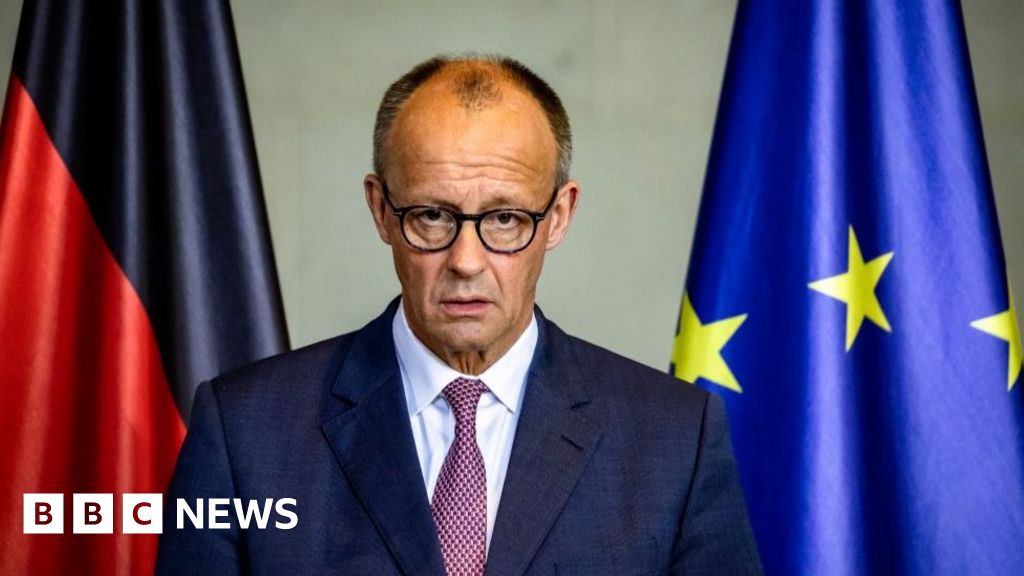- Education
Shop at Counter Culture Coffee
时间:2010-12-5 17:23:32 作者:Technology Policy 来源:Economy 查看: 评论:0内容摘要:A second federal court on Thursday found Trump’s tariffs to be improper. Then a federal appeals court said the government can continue to collect the tariffs under the emergency powers law for now as the Trump administration challenges the ruling, though the government could be obligated to refund the money if the ruling is upheld.A second federal court on Thursday found Trump’s tariffs to be improper. Then a federal appeals court said the government can continue to collect the tariffs under the emergency powers law for now as the Trump administration challenges the ruling, though the government could be obligated to refund the money if the ruling is upheld.
, easing trade war tensions.on the tariffs, while moving to expand trade ties with China and others.

Brunei’s Sultan Hassanal Bolkiah, one of the world’s wealthiest men and longest-reigning current monarch, was missing from the three-party summit after he was hospitalized for fatigue. He attended ASEAN summits on Monday and the ASEAN-GCC meeting earlier Tuesday.“He is feeling a little tired, so he’s just resting” at the National Heart Institute, Anwar told reporters.The sultan’s office also issued a statement saying the monarch will rest at the heart institute for “several days” following advice from Malaysian medical experts. It said he was “in good health” but didn’t elaborate.

Anwar told a news conference at the end of the summit that ASEAN wasn’t pivoting towards China but that it works with both Beijing and Washington because it makes economic sense.“I don’t think (ASEAN) is tilting in any way,” he said.

Collins Chong Yew Keat, a foreign affairs, strategy and security analyst with Universiti Malaya, said the ASEAN-GCC-China summit underscored Beijing’s efforts to strengthen support during its trade battle with the U.S. He noted it came on the heels of Trump’s recent charm offensive in Saudi Arabia, Qatar and the United Arab Emirates.
While relying on U.S. defense support, ASEAN is increasing reliance and partnership with China and other U.S. rivals, Chong said. The bloc has failed to take strong action against Beijing’s aggression in the disputed South China Sea, he said. ASEAN members Vietnam, the Philippines, Malaysia and Brunei have overlapping claims with China, which asserts sovereignty over almost the entire South China Sea., the biggest driver of overdoses now.
But what each state will do with that money is currently at issue. “States can either say, ‘We won, we can walk away’” in the wake of the declines or they can use the lawsuit money on naloxone and other efforts, said Regina LaBelle, a former acting director of the Office of National Drug Control Policy. She now heads an addiction and public policy program at Georgetown University.President Donald Trump’s administration views opioids as largely a law enforcement issue and as a reason to step up border security. It also has been reorganizing and downsizing federal health agencies.
Health Secretary Robert F. Kennedy Jr. said overdose prevention efforts will continue, but some public health experts say cuts mean the work will not go on at the same level.U.S. Rep. Madeleine Dean, a Pennsylvania Democrat, asked Kennedy at a Wednesday hearing “why the hell” those changes are being made when the steep drop in deaths showed “we were getting somewhere.” Some advocates made a similar point in a call with reporters last week.
- 最近更新
- 2025-07-07 05:47:46‘Foreigners for both nations’: India pushing Muslims ‘back’ to Bangladesh
- 2025-07-07 05:47:46Which US cities have the LA immigration protests spread to?
- 2025-07-07 05:47:46Elon Musk’s X sues New York to block social media hate speech law
- 2025-07-07 05:47:46History Illustrated: The Kerch Bridge is ‘doomed’
- 2025-07-07 05:47:46Which US cities have the LA immigration protests spread to?
- 2025-07-07 05:47:46Closing on a house: What to expect
- 2025-07-07 05:47:46US Fed leaves interest rates unchanged amid economic uncertainty
- 2025-07-07 05:47:46Tourist found dead days after she fell at popular volcano
- 热门排行
- 2025-07-07 05:47:46our guide to guest drivers and car insurance
- 2025-07-07 05:47:46Hezbollah watches on as Iran and Israel battle, for now
- 2025-07-07 05:47:46The 10-Minute Martha Stewart Tomato Recipe I've Been Making for 20 Years
- 2025-07-07 05:47:4610 best apps to save money on food — from groceries to restaurants
- 2025-07-07 05:47:46Black smoke billowed from the site
- 2025-07-07 05:47:46At least 49 dead in South Africa flooding, students washed away in bus
- 2025-07-07 05:47:46EyeVac Pro Touchless Automatic Dustpan
- 2025-07-07 05:47:46Photos: The deadliest day at Gaza’s food distribution centres
- 友情链接
- Why were boats flying over Puget Sound this week? Judge orders El Salvador human rights lawyer jailed pending trial Pacers, Thunder got to the NBA Finals fueled by doubters. A title will give 1 team the last laugh Trump's tariffs would cut US deficits and shrink the economy, CBO says Pakistani troops kill 14 militants in raid in northwest region near Afghanistan Nevada's bipartisan deal: Voter ID law and more ballot drop boxes Gaza Humanitarian Foundation pauses food delivery after deadly shootings Judge issues order stopping deportation of family of man charged in Boulder firebombing Trump anuncia veto y restricciones a viajeros de 19 países que entrarán en vigor el lunes Gauff beats Keys in Paris, meets 361st-ranked foe in semis What to know about an immigrant in Wisconsin falsely accused of threatening Trump's life Trump’s promised steel and aluminum tariffs go into effect China suppresses talk of Tiananmen Square crackdown on anniversary Andrew Cuomo faces attacks from all sides in New York City mayoral debate Women's sports bar The Sports Bra set to expand to four new cities Labubu: The arrival of the viral toy was a long time in the making Elon Musk calls Trump's tax break bill a 'disgusting abomination' Egypt says the sovereignty of a famous monastery is assured Jury convicts Wisconsin inmate accused of killing cellmate for being Black and gay México elige a un abogado indígena para la Suprema Corte, un símbolo rodeado de controversia A man is arrested over links to the Palm Springs fertility clinic bombing Stephen King talks 'Life of Chuck' film and 'Never Flinch' thriller Teenager fatally pinned between 2 vehicles in California private school parking lot Ex-White House press secretary Karine Jean-Pierre leaves Democratic Party Jury deliberations near in Harvey Weinstein sex crimes retrial Judge blocks private prison operator from housing ICE detainees at shuttered Kansas center Steve Kramer, who sent AI robocalls mimicking Biden, goes on trial Resilience lunar lander from Japan heads for moon touchdown 2 men arrested with arsenal and Nazi paraphernalia after base robbery, prosecutors say Women's sports bar The Sports Bra set to expand to four new cities
